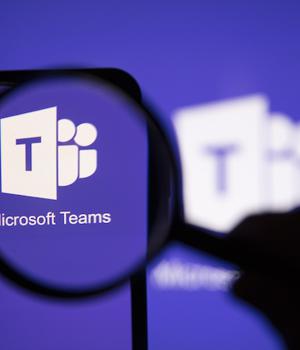Security News > 2020 > October > Microsoft Teams Phishing Attack Targets Office 365 Users

Researchers are warning of a phishing campaign that pretends to be an automated message from Microsoft Teams.
The initial phishing email displays the name "There's new activity in Teams," making it appear like an automated notification from Microsoft Teams.
Researchers said that the phishing landing page also looks convincingly like a Microsoft login page with the start of the URL containing "Microsftteams." If recipients are convinced to input their Microsoft credentials into the page, they are unwittingly handing them over to attackers, who can then use them for an array of malicious purposes - including account takeover.
In May, a convincing campaign that impersonated notifications from Microsoft Teams in order to steal the Office 365 credentials of employees circulated, with two separate attacks that targeted as many as 50,000 different Teams users.
Microsoft is top of the heap when it comes to hacker impersonations - with Microsoft products and services featuring in nearly a fifth of all global brand phishing attacks in the third quarter of this year.
News URL
https://threatpost.com/microsoft-teams-phishing-office-365/160458/
Related news
- Hackers Exploit AWS Misconfigurations to Launch Phishing Attacks via SES and WorkMail (source)
- New ClickFix attack deploys Havoc C2 via Microsoft Sharepoint (source)
- New Microsoft 365 outage impacts Teams, causes call failures (source)
- Microsoft Teams tactics, malware connect Black Basta, Cactus ransomware (source)
- YouTube warns of AI-generated video of its CEO used in phishing attacks (source)
- Microsoft Warns of ClickFix Phishing Campaign Targeting Hospitality Sector via Fake Booking[.]com Emails (source)
- Ukrainian military targeted in new Signal spear-phishing attacks (source)
- Hidden Threats: How Microsoft 365 Backups Store Risks for Future Attacks (source)
- Microsoft’s new AI agents take on phishing, patching, alert fatigue (source)
- After Detecting 30B Phishing Attempts, Microsoft Adds Even More AI to Its Security Copilot (source)